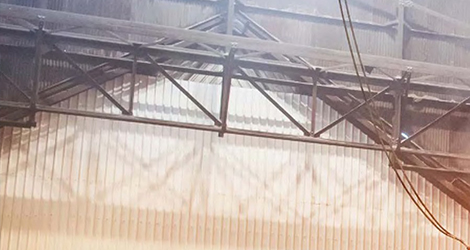Want to Subscribe?
Read Corporate India and add to your Business Intelligence

![]() Unlock Unlimited Access
Unlock Unlimited Access

Editorial
Once again the Reserve Bank of India, the country’s central bank, has raised the repo rate – this time by 50 bps to 5.4 per cent. Despite repeated hikes in the repo rate making bank credit costlier, there has been no impact on the inflationary price spiral. In fact, RBI Governor Shaktikanta Das recently admitted that inflation is at an “uncomfortably high level.” Surprisingly, the hike in the repo rate will further fuel inflation. The rate hike will hit existing home loan borrowers hard while forcing new home loan borrowers to shell out more.
In line with the RBI, all banks have also raised their lending rates, adversely affecting the pace of growth. This will hit the MSME sector very hard. All these developments will further fuel the inflationary price spiral.
During the last three months, the repo rate has been revised upwards by 40 bps in April, 50 bps in May and 50 bps most recently. But despite this 1.4 per cent hike in the repo rate during the last three months, there has been no impact on the inflation rate — on the contrary, it has continued its upward march. The consumer price index (CPI), which directly affects the public, inched up from 7.68 per cent in March to 7.79 per cent in June.
Headline CPI prices do not convey the real impact on the common man of the actual price rises of essential commodities like cereals, pulses, fruits, vegetables and edible oils. The price spiral has shaken the public in general and the lower middle-class and low-income groups in particular, and has sent shivers down in the spines of the millions who literally live hand-tomouth. Worse, the price spiral follows the disastrous Covid-19 pandemic and the resultant multiple lockdowns that saw a massive loss of jobs. For a meal or two per day, many families may have to sacrifice their children’s schooling, postpone medical treatment for family members and hold back on other requirements which may be detrimental to their well-being in the long run.
For its part, the government off and on continues to blame the spiralling inflation on the inflationary price pressure in the US. But the major culprit for the current unabated price rise is the government’s own taxation policy – exemplified by petrol and diesel price rises which have a cascading effect on prices of consumer essentials. The excise duty on petrol was Rs 9.48 per litre and Rs 3.58 on diesel when the Modi government came to power in 2014, but shot up to Rs 32.98 and Rs 31.83 respectively in May 2020. The duty was cut by Rs 13 and Rs 16 per litre respectively between 2021 and May 2022, but is still on the very high side.
In 2014-15, the Central government earned Rs 1.72 lakh crore in revenues from the petroleum sector, which climbed up to Rs 4.92 lakh crore in fiscal 2021-22. At the same time, the contribution of the sector to the states rose from Rs 1.6 lakh crore to Rs 2.82 lakh crore turning this period. Between November 2014 and January 2016, the excise duty on petrol was raised on as many as 10 occasions, paving the way for the inflation monster to raise its ugly head to a new all-time high.
At the same time, the Centre has relentlessly resorted to hiking/imposing GST on essential commodities – hardly befitting a government committed to a welfare state. No doubt, extraneous factors like the prolonged Russia-Ukraine war, economic problems in the US and Europe, and recent abnormal heat waves and floods in certain parts of the globe have added to inflationary pressures. Besides, the RBI’s repeated repo rate hikes too cannot produce the desired results as the Indian economy, unlike that of the US, is not totally transparent and the sizeable amount of black money floating in the economy has the effect of thwarting the RBI’s monetary actions.
The RBI should make it clear to the Centre that the ball is in the latter’s court and the government should take the required fiscal measures to bring down prices. This is the time for the country’s central bank to take its advisory role in all seriousness.
Cover story

After a Covid pandemic-hit lull in performance and growth in the last two years, the Indian steel industry is coming into its own all over again, thanks to the Centre’s policies and budgetary support for public infrastructure as well as a pick-up in the realty sector.
News & Events
Foundation for Innovative Packaging and Sustainability (FIPS), a non-government, non-profit organisation established in 2020 will be organising India’s pioneering International Conference on RESPACK (Responsible Packaging).
Fortune Scrip
This fortnight I have selected as Fortune Scrip a comparatively new company which will make its shareholders as proud as the TCS-Infosys-Wipro trio made this investor in the 1980s and 1990s. It is Happiest Minds Technologies, the superb creation of 79-year-young IT veteran Ashok Soota, who famously developed the IT business of Wipro and set up multi-bagger IT company Mind Tree.

February 15, 2025 - First Issue

Industry Review

Want to Subscribe?
Read Corporate India and add to your Business Intelligence

![]() Unlock Unlimited Access
Unlock Unlimited Access
Lighter Vein

Popular Stories
Archives
